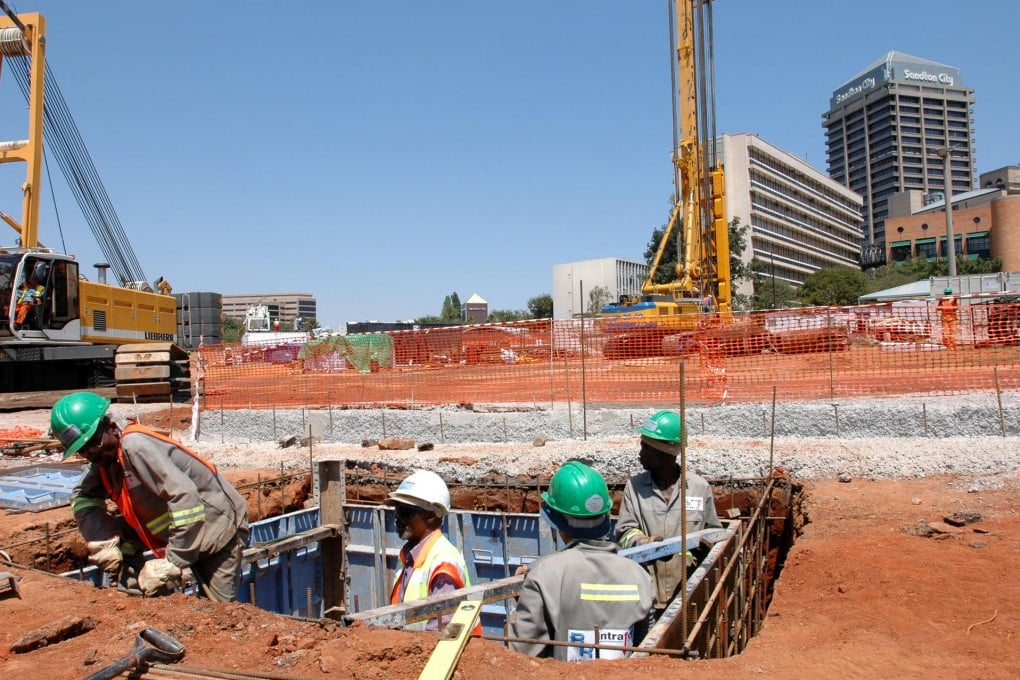South Africa enlists Bank of China to help pull in Chinese investment
State visit by South African president will see signing of agreement to boost Chinese spending in infrastructure, minerals and green energy

South Africa's Department of Trade and Industry will sign a memorandum of understanding with the Bank of China during the state visit of South African President Jacob Zuma to Beijing next month in a bid to attract more Chinese investments into South Africa's troubled economy.

Over the next three years, the South African government will spend over 800 billion rand (HK$561.4 billion) on infrastructure including railways, roads, energy, water and telecommunications, said Zanele Sanni, chief director of export promotion and marketing at the department of trade and industry.
"The unemployment rate in South Africa remains high. It is important that we promote a more labour-absorbing industrialisation with a particular emphasis on labour-intensive goods and services. South Africa needs to ensure diversification beyond commodities," said Sanni.
South Africa hopes to see significant co-investment in the African state's infrastructure by Hong Kong and Chinese companies, and the South African government is talking to Hong Kong and Chinese companies on this matter, said Soldaat.
In previous years, the South African government's investment in infrastructure had been much less. South Africa needs to create jobs to alleviate its 25 per cent unemployment rate.